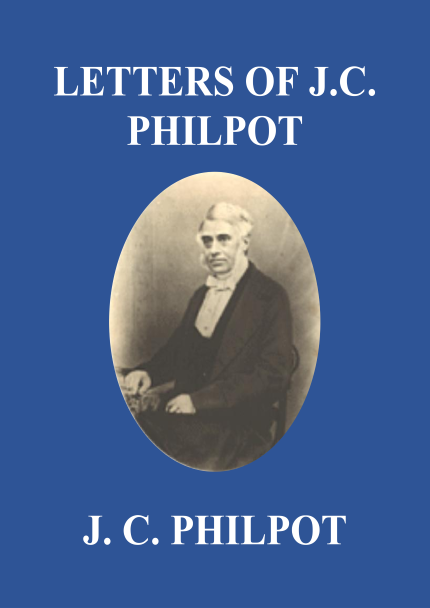By Joseph Charles Philpot.

Letters of J.C. Philpot.
By Joseph Charles Philpot.
About the Author Joseph Charles Philpot:
Joseph Charles Philpot (1802-1869) was an English preacher and writer who played an important role in the development of the Strict Baptist movement in the 19th century.
Philpot was born in Ripple, Kent, England, and was educated at Oxford University. He became a minister in the Church of England in 1825 but later became dissatisfied with its teachings and joined the Strict Baptists in 1835. He soon became a prominent preacher in this movement and was widely regarded as one of its leading figures.
About the book: Letters of J.C. Philpot:
“Letters of J.C. Philpot” is a collection of personal letters written by Joseph Charles Philpot, a prominent 19th century English preacher and theologian. The letters were compiled and edited by his friend and colleague, Henry Craik, and were first published in 1862, a year after Philpot’s death.
The letters offer a unique insight into Philpot’s personal life, as well as his theological beliefs and pastoral ministry. They are addressed to various individuals, including family members, friends, and fellow ministers, and cover a wide range of topics, including spiritual growth, Christian doctrine, pastoral care, and personal struggles.
Philpot’s writing in the letters is marked by his deep spirituality and his emphasis on the experiential aspect of Christian faith. He often uses vivid and poetic language to describe his own spiritual experiences, as well as to encourage others in their walk with God.
The letters also reveal Philpot’s deep concern for the welfare of his congregation and his commitment to pastoral ministry. He offers practical advice on various issues related to pastoral care, including counseling, evangelism, and dealing with spiritual doubts and struggles.
Overall, “Letters of J.C. Philpot” is a valuable resource for anyone interested in the life and ministry of this influential 19th century preacher and theologian. The letters offer a personal glimpse into Philpot’s spiritual journey, as well as his pastoral heart and theological insights.